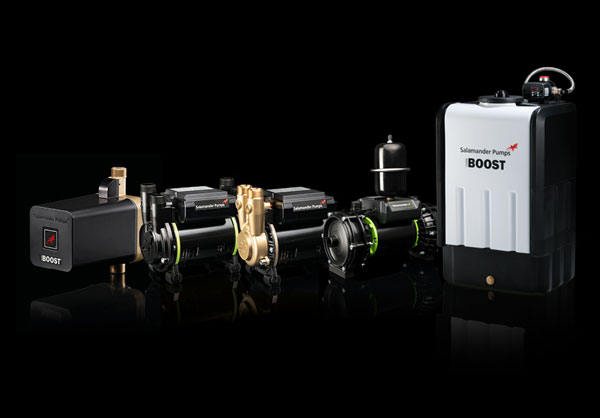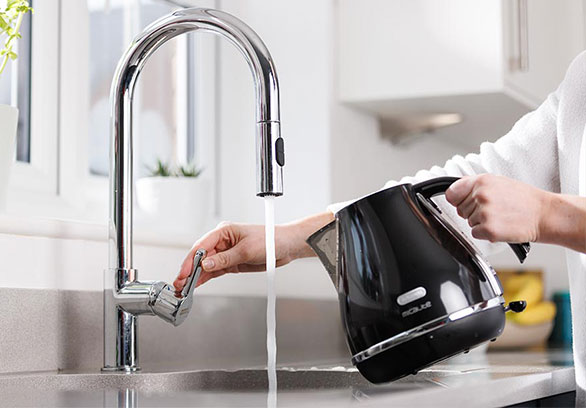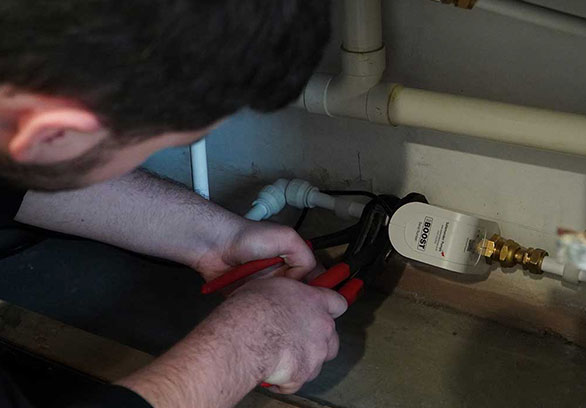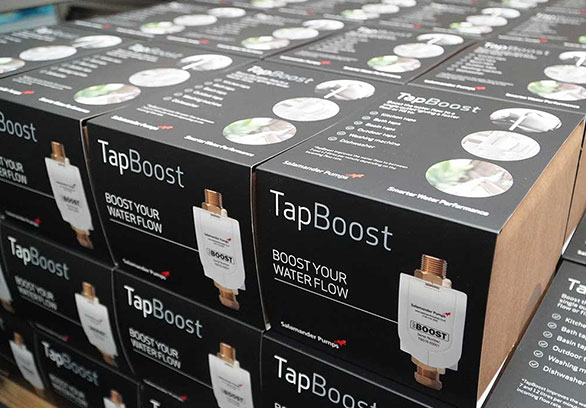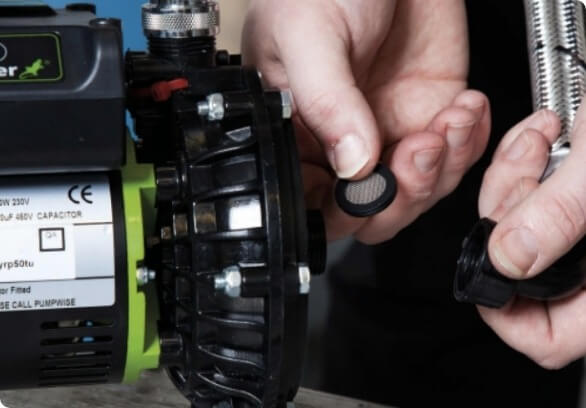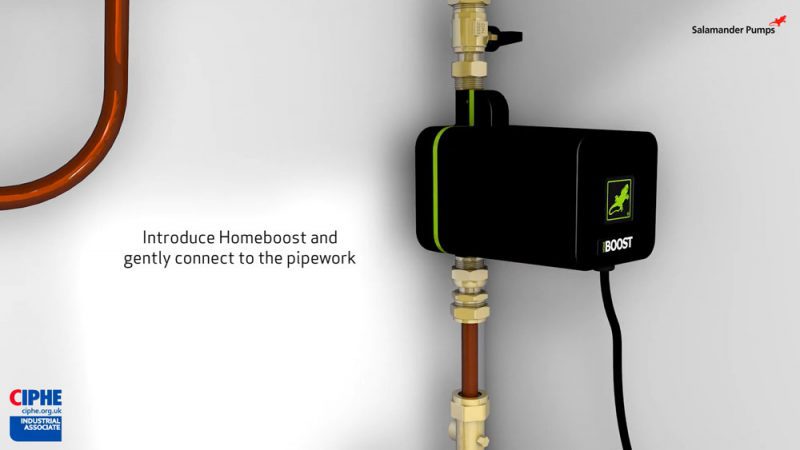Installation
How to Install HomeBoost and CombiBoost
Low water pressure has an impact on the day-to-day lives of homeowners across the UK, and many home owners are often unaware that actually, there could be an easy solution to solve their pressure problems.
Our CombiBoost and HomeBoost products both offer a solution. These innovative inline pumps boost a the mains water supply flow rate to deliver faster flowing taps, more powerful showers and quicker bath fill. With HomeBoost increasing the water flow up to 12 litres per minute (L/min) and CombiBoost improving the water flow up to 10 L/min.
Combi boilers have continued to gain popularity over the last couple of decades, and both inline pumps provide an easy solution to boosting mains flow for any home with this type of system.
Here, Mike Oxley, Training Manager at Salamander Pumps, runs through the steps to help you install these pumps.
Pre-installation
Before beginning the installation process, you should always read the installation guide. This is your first port of call and should be reviewed for each install.
The pump should be fitted directly into the incoming mains supply either just after the stop-tap or just before the combination boiler. It is advised to position the pump near the stop tap, installing either vertically or horizontally, but never upside down. Ensuring there is adequate airflow to cool the motor, and ensuring that it is separated from any other appliances that generate heat.
Installation
Begin your installation by unboxing the pump and reading the installation guide, this is key to avoiding common installation pitfalls. You can now begin to install the pump, here’s how to do it in eight steps….
1. Turn off the mains
Make sure to turn off the mains water supply at the stop tap and drain down the system.
2. Cut the pipe
Next, cut and remove the required section of the pipe. You must ensure the size of this section at least exceeds the height of the pump (this can be found on the HomeBoost or CombiBoost pages, allowing enough space for both the pump and required fittings.
3. Attach fittings
These pumps require 15mm or 22mm isolation pump connections, along with an outlet flat washer and inlet filter washer.( Fittings kit available separately.)
4. Connect the pump
Now, you can introduce the pump into its location and gently connect it to the pipework.
5. Turn the mains water on
You can now switch the mains water back on at the stop tap.
6. Run the tap
With the pump installed, you will then need to open the isolation valves, checking for any leaks as you go.
Flush the inlet pipework and fully fill the pump with water by opening all the water outlets before electrically switching the pump on. It is critical to discharge water through all the outlets, using natural flow before switching the pump on electrically. This will ensure that the air has been discharged from the connecting pipe work and pump chamber.
7. Plug the pump in
Once you have ensured all air is purged from the system, checked for natural flow on the cold outlets, and inspect for any leaks, you can now plug in the the pump or connect it to a fused spur.
8. Check it’s active
The pump should now be active, you should be able to hear the mechanism rotating when an outlet is opened.
Once the installation is complete, you will see an improved shower performance, quicker bath fill times and stronger flowing taps.
